
IT Consultants in Digital Transformation
Last updated: March 17, 2025 Read in fullscreen view
- 05 Oct 2025
 The New Facebook Algorithm: A Paradigm Shift in Content Discovery 66/109
The New Facebook Algorithm: A Paradigm Shift in Content Discovery 66/109 - 01 May 2023
 Understanding Business as Usual (BAU) and How to Transition 52/930
Understanding Business as Usual (BAU) and How to Transition 52/930 - 03 Oct 2025
 Top CMS Trends 2026: The Future of Digital Content Management 37/55
Top CMS Trends 2026: The Future of Digital Content Management 37/55 - 20 Dec 2025
 The Future of IT Consulting: Key Trends for 2026–2030 35/67
The Future of IT Consulting: Key Trends for 2026–2030 35/67 - 03 Nov 2023
 Why Is Billable Viable Product An Alternative To Minimum Viable Product? 31/200
Why Is Billable Viable Product An Alternative To Minimum Viable Product? 31/200 - 01 Sep 2022
 Facts Chart: Why Do Software Projects Fail? 29/596
Facts Chart: Why Do Software Projects Fail? 29/596 - 10 Sep 2024
 Leading Remote Teams in Hybrid Work Environments 27/160
Leading Remote Teams in Hybrid Work Environments 27/160 - 14 Aug 2024
 From Steel to Software: The Reluctant Evolution of Japan's Tech Corporates 24/545
From Steel to Software: The Reluctant Evolution of Japan's Tech Corporates 24/545 - 31 Dec 2025
 10 Skills to Make You "Irreplaceable" in the Next 3 Years (even if AI changes everything) 22/34
10 Skills to Make You "Irreplaceable" in the Next 3 Years (even if AI changes everything) 22/34 - 11 Oct 2022
 Why choose Billable Viable Product (BVP) over Minimum Viable Product (MVP) 22/361
Why choose Billable Viable Product (BVP) over Minimum Viable Product (MVP) 22/361 - 20 Jan 2021
 Fail early, fail often, fail cheap, fail safe but always fail forward 20/750
Fail early, fail often, fail cheap, fail safe but always fail forward 20/750 - 02 Nov 2021
 [Case Study] Streamlined Data Reporting using Tableau 19/308
[Case Study] Streamlined Data Reporting using Tableau 19/308 - 21 Dec 2023
 Top 12 Low-Code Platforms To Use in 2024 18/1248
Top 12 Low-Code Platforms To Use in 2024 18/1248 - 20 Jan 2022
 TIGO Self-Organization Practice: Change Management Workflow 18/471
TIGO Self-Organization Practice: Change Management Workflow 18/471 - 16 Apr 2021
 Insightful Business Technology Consulting at TIGO 18/412
Insightful Business Technology Consulting at TIGO 18/412 - 03 Dec 2025
 IT Outsourcing Solutions Explained: What, How, Why, When 18/40
IT Outsourcing Solutions Explained: What, How, Why, When 18/40 - 23 Jun 2025
 AI Avatars in the Metaverse: How Digital Beings Are Redefining Identity and Social Interaction 18/125
AI Avatars in the Metaverse: How Digital Beings Are Redefining Identity and Social Interaction 18/125 - 22 Nov 2024
 The Role of AI in Enhancing Business Efficiency and Decision-Making 17/196
The Role of AI in Enhancing Business Efficiency and Decision-Making 17/196 - 18 Aug 2024
 The Future of Web Development: Emerging Trends and Technologies Every Developer Should Know 17/201
The Future of Web Development: Emerging Trends and Technologies Every Developer Should Know 17/201 - 02 Dec 2022
 Success Story: Satsuki - Sales Management Software, back office app for School Subscription Management 17/248
Success Story: Satsuki - Sales Management Software, back office app for School Subscription Management 17/248 - 20 Feb 2025
 How Machine Learning is Shaping the Future of Digital Advertising 16/123
How Machine Learning is Shaping the Future of Digital Advertising 16/123 - 11 Nov 2021
 What is an IT Self-service Portal? Why is it Important to Your Business? 16/427
What is an IT Self-service Portal? Why is it Important to Your Business? 16/427 - 31 Dec 2022
 The New Normal for Software Development 15/364
The New Normal for Software Development 15/364 - 13 Feb 2021
 Why is TIGOSOFT a software house for Enterprise Application Development? 15/362
Why is TIGOSOFT a software house for Enterprise Application Development? 15/362 - 02 Dec 2024
 The Intersection of AI and Business Analytics: Key Concepts to Master in Your Business Analytics Course 15/295
The Intersection of AI and Business Analytics: Key Concepts to Master in Your Business Analytics Course 15/295 - 10 Jul 2025
 Building AI-Driven Knowledge Graphs from Unstructured Data 14/162
Building AI-Driven Knowledge Graphs from Unstructured Data 14/162 - 18 Jul 2024
 The 8 Best ways to Innovate your SAAS Business Model in 2024 14/256
The 8 Best ways to Innovate your SAAS Business Model in 2024 14/256 - 27 Jul 2024
 Positive Psychology in the Digital Age: Future Directions and Technologies 14/407
Positive Psychology in the Digital Age: Future Directions and Technologies 14/407 - 07 Aug 2022
 Things to Consider When Choosing a Technology Partner 14/283
Things to Consider When Choosing a Technology Partner 14/283 - 08 Nov 2022
 4 tips for meeting tough deadlines when outsourcing projects to software vendor 14/291
4 tips for meeting tough deadlines when outsourcing projects to software vendor 14/291 - 03 Sep 2022
 The secret of software success: Simplicity is the ultimate sophistication 14/214
The secret of software success: Simplicity is the ultimate sophistication 14/214 - 01 Jan 2024
 The pros and cons of the Centralized Enterprise Automation Operating model 14/224
The pros and cons of the Centralized Enterprise Automation Operating model 14/224 - 31 Dec 2023
 Software Development Outsourcing Trends to Watch Out for in 2024 13/233
Software Development Outsourcing Trends to Watch Out for in 2024 13/233 - 07 Jul 2021
 The 5 Levels of IT Help Desk Support 13/448
The 5 Levels of IT Help Desk Support 13/448 - 10 Apr 2021
 RFP vs POC: Why the proof of concept is replacing the request for proposal 12/322
RFP vs POC: Why the proof of concept is replacing the request for proposal 12/322 - 17 Jun 2021
 What is IT-business alignment? 12/374
What is IT-business alignment? 12/374 - 20 Aug 2025
 What Is Agentic AI? The Next Phase of Artificial Intelligence 12/149
What Is Agentic AI? The Next Phase of Artificial Intelligence 12/149 - 25 Jan 2025
 The Decline of Traditional SaaS and the Rise of AI-first Applications 12/109
The Decline of Traditional SaaS and the Rise of AI-first Applications 12/109 - 09 Oct 2024
 Short-Form Video Advertising: The Secret to Captivating Your Audience 12/134
Short-Form Video Advertising: The Secret to Captivating Your Audience 12/134 - 03 Oct 2021
 Five long-lasting trends in Chinese Marketing 11/378
Five long-lasting trends in Chinese Marketing 11/378 - 06 Mar 2021
 4 things you need to do before getting an accurate quote for your software development 11/679
4 things you need to do before getting an accurate quote for your software development 11/679 - 16 Feb 2021
 Choose Outsourcing for Your Non Disclosure Agreement (NDA) 11/173
Choose Outsourcing for Your Non Disclosure Agreement (NDA) 11/173 - 06 Nov 2023
 How do you streamline requirement analysis and modeling? 11/222
How do you streamline requirement analysis and modeling? 11/222 - 03 Jan 2024
 Why Partnership is important for Growth? 10/159
Why Partnership is important for Growth? 10/159 - 16 Sep 2022
 Examples Of Augmented Intelligence In Today’s Workplaces Shaping the Business as Usual 10/436
Examples Of Augmented Intelligence In Today’s Workplaces Shaping the Business as Usual 10/436 - 03 Nov 2022
 Top questions and answers you must know before ask for software outsourcing 10/291
Top questions and answers you must know before ask for software outsourcing 10/291 - 03 May 2024
 The Iceberg of Ignorance 10/403
The Iceberg of Ignorance 10/403 - 05 Aug 2024
 Revisiting the Mistake That Halted Japan's Software Surge 10/342
Revisiting the Mistake That Halted Japan's Software Surge 10/342 - 10 Sep 2024
 AI in Email Marketing: Personalization and Automation 10/182
AI in Email Marketing: Personalization and Automation 10/182 - 19 Dec 2023
 How AI is Transforming Software Development? 9/294
How AI is Transforming Software Development? 9/294 - 03 Apr 2021
 How digital asset management streamlines your content workflow? 9/333
How digital asset management streamlines your content workflow? 9/333 - 16 Jun 2022
 Rapid Application Development (RAD): Pros and Cons 9/866
Rapid Application Development (RAD): Pros and Cons 9/866 - 09 Mar 2022
 Consultant Implementation Pricing 8/213
Consultant Implementation Pricing 8/213 - 09 Jan 2022
 How to Bridge the Gap Between Business and IT? 8/178
How to Bridge the Gap Between Business and IT? 8/178 - 16 Aug 2022
 What is a Headless CMS? 8/272
What is a Headless CMS? 8/272 - 01 Mar 2023
 How do you deal with disputes and conflicts that may arise during a software consulting project? 7/165
How do you deal with disputes and conflicts that may arise during a software consulting project? 7/165 - 05 Oct 2021
 Shiny Object Syndrome: Why Your Business Isn't "Going Digital" 7/350
Shiny Object Syndrome: Why Your Business Isn't "Going Digital" 7/350 - 30 Jul 2024
 The Future of IT Consulting: Trends and Opportunities 6/190
The Future of IT Consulting: Trends and Opportunities 6/190 - 25 Sep 2024
 Enhancing Decision-Making Skills with an MBA: Data-Driven Approaches for Business Growth 6/201
Enhancing Decision-Making Skills with an MBA: Data-Driven Approaches for Business Growth 6/201 - 07 Oct 2022
 Digital Transformation: Become a Technology Powerhouse 6/244
Digital Transformation: Become a Technology Powerhouse 6/244 - 21 Jun 2021
 6 Useful Tips To Streamline Business Processes and Workflows 5/527
6 Useful Tips To Streamline Business Processes and Workflows 5/527 - 30 Oct 2022
 How Much Does MVP Development Cost in 2023? 5/240
How Much Does MVP Development Cost in 2023? 5/240 - 31 Dec 2022
 Future of Software Development Trends and Predictions 5/143
Future of Software Development Trends and Predictions 5/143 - 09 Feb 2023
 The Challenge of Fixed-Bid Software Projects 5/213
The Challenge of Fixed-Bid Software Projects 5/213 - 20 Nov 2022
 Software Requirements Are A Communication Problem 5/244
Software Requirements Are A Communication Problem 5/244 - 01 May 2023
 CTO Interview Questions 5/329
CTO Interview Questions 5/329 - 01 Aug 2024
 Red vs. Blue Oceans in Software Development 5/200
Red vs. Blue Oceans in Software Development 5/200 - 18 Jan 2024
 Self-healing code is the future of software development 5/213
Self-healing code is the future of software development 5/213 - 27 Feb 2025
 How AI Agents are Changing Software Development? 4/186
How AI Agents are Changing Software Development? 4/186
The Evolving Role of IT Consultants in Digital Transformation
IT consultants have become the architects of digital transformation. They’re no longer just the go-to fixers for server crashes or network issues. Instead, they’re helping enterprises evolve themselves through technology.
Whether it is through automation, cloud computing, artificial intelligence, or cybersecurity, modernization is vital for any firm. Knowing which technologies to use, when to use them, and how to integrate them with business goals isn't always simple. IT specialists can help in this situation. Apart from providing solutions, they also develop roadmaps, lower risks, and ensure that businesses remain ahead of the curve in a world that is becoming more and more digital.
IT Consulting Is No Longer Just Tech Support
When your system failed or your network went down in the past, you called IT consultants. They are now assisting companies in reconsidering how they function, develop, and expand in the digital age.
Example: Let's say you are a retail business owner who wants to go online. You need more than just a website; you also need to handle customer data, connect inventories, and determine how AI may assist you in anticipating what your customers want before they even realize it. A good IT consultant doesn’t just build the tech; they help you make strategic decisions that keep you competitive.
What IT Consultants Do Today
Digital Strategy
Technology isn’t just a tool; it is a strategy. Digital transformation in a business is more than automating systems. It is about building a digital ecosystem for the business where such systems and people can thrive. IT consultants help businesses improve their existing technology or upgrade it to improve productivity, save costs, and achieve their business goals.
An IT consultant can help a manufacturing firm save time and costs by deploying IoT sensors in their plant. IoT, or the Internet of Things, creates a network for devices to communicate with each other. In this case, it can predict equipment failure before it happens, and the IT consultant can realign that tech with their supply chain operations.
Moving Companies to the Cloud
Businesses run on the cloud now. There are no floppy disks and hard drives in sight. The bigger the scale of operations, the more cloud infrastructure a company needs. While scaling, most companies can find it daunting to move from their regular servers to a highbrow server. IT consultants help businesses pick the right platforms, migrate data securely, and optimize costs.
Defending Companies Against Online Attacks
It doesn’t matter which industry a business is operating in. Information is critical and sensitive when you are playing a multi-player game. Today, data is money, and unsecured data can be money left on the table, and in this case on somebody else’s table. IT consultants can assist you in staying ahead of hackers by establishing security frameworks, carrying out risk assessments, and guaranteeing compliance since data breaches make news every other day. For instance, a hospital needs IT experts to make sure that its patient records are safe, in compliance with HIPAA, and accessible to physicians and staff.
Making Sense of Data
Data is leverage, and not leveraging it means you aren’t playing to your full potential. IT experts help you build this leverage from the group up. They set up systems powered by AI and algorithms to ensure that the data is information in its most comprehensive form. IT consultants help companies turn raw data into insights that drive better decisions. For example, an IT expert well-versed in cybersecurity and compliance regulations will ensure that switching to AWS or Azure doesn't interfere with a FinTech firm’s operations.
Upgrading Old IT Systems
If you’re building a business for tomorrow, the tech can’t be stuck in the past. There’s no space for outdated systems in a space where competition is cutthroat. IT consultants help companies modernize their systems, integrate new software, and automate operations to boost efficiency.
In the case of a logistics company, an IT consultant would first facilitate the shift from manual tracking to GPS-enabled fleet management. This will further be done on different levels and across different warehouses. This move will improve delivery times and customer satisfaction when employed strategically.
How to Choose the Right IT Consultants
An experienced IT consultant brings evidence-based facts and proven expertise to back their strategies and execution.
This is how you can assess their expertise:
1. Are They Familiar with Your Industry?
IT solutions tailored for a BFSI (Banking, Financial Services, and Insurance) firm differ significantly from those designed for a fashion brand. While some IT consultants may have experience in your broader industry, they might lack expertise in your specific niche. Before engaging them, confirm that they grasp the nuances of your business.
Seek consultants who not only understand your unique challenges but also have deep expertise in effective strategies to address them.
2. Do They Customize or Just Sell?
You may or may not have the pleasure of encountering tech resellers disguised as IT consultants. Don’t fall for it. A good IT consultant will help you find a solution to your problem, not make one to sell you something irrelevant. If they push the same 'one size fits all' package to every client, part ways cordially.
3. Do They Prioritize Security?
Technology without security is a disaster waiting to happen. Your IT consultant should be able to ensure your business is protected against cyber threats.
4. Can They Show You Results?
Don't believe them at face value. Request case studies, endorsements, or actual instances of how they have benefited companies similar to yours. Always ask for proof of work before you start working.
5. Are Their Solutions Scalable?
Your business is going to grow. Some solutions are only relevant to go from 0 to 1 and can instantly become obsolete as you start growing. Make sure the technology they recommend will grow with you instead of becoming obsolete in a year.
What’s Next for IT Consulting?
IT Consulting is a vast field with a world of opportunities. This also means that IT consultants are going to traverse into newer, more exciting territories. The upcoming trends seem favorable for both generalists and specialists in the IT consulting field.
Let’s look at the top five trends:
- 1. AI: These days, it’s hard to get through a sentence without mentioning AI at least once. That might be a slight exaggeration, but you catch my drift—AI is ubiquitous. Its widespread presence means that most systems and processes need to evolve to keep pace with modern demands. IT consultants are now leveraging AI to automate security monitoring, accelerate data analysis, and more.
- 2. Green IT: Greta Thunberg is proud of us. Businesses are understanding climate change and the environmental consequences of digital transformation. This has pushed many of them to pay attention to sustainability. IT consultants are assisting them in making the switch to cloud solutions and energy-efficient data centers that have smaller carbon footprints.
- 3. Blockchain: You may have only heard about the power of blockchain technology in the context of cryptocurrencies. However, it looks like there’s a broader scope and acceptance for blockchain as a technology. More and more people are deploying it for different use cases owing to its highly secure nature. IT consultants are helping businesses use blockchain for secure financial transactions, digital identity verification, and supply chain transparency.
- 4. Remote Work: Remote work has redefined the future of work. It may have also redefined the future of data security. More businesses feel the need to have proper systems in place for remote work to avoid cyber threats and data breaches. IT consultants are assisting companies in implementing hybrid work models with cloud-based operations and secure remote access.
- 5. No-Code & Low-Code Platforms: Making an app is simpler than filing taxes today. Businesses are using low-code/no-code platforms to create apps more quickly without using large development teams. IT consultants are helping them integrate these tools into their workflows.





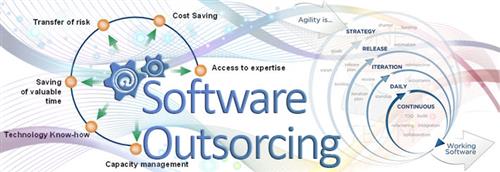
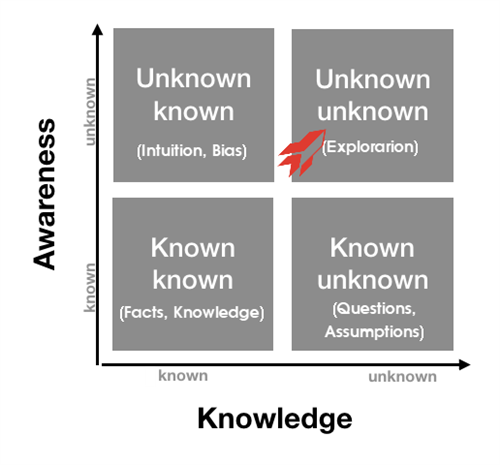
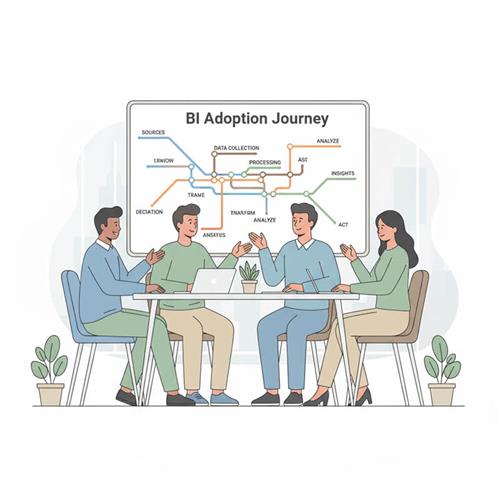









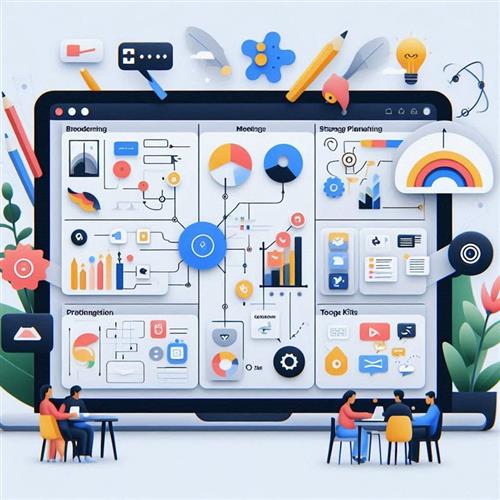
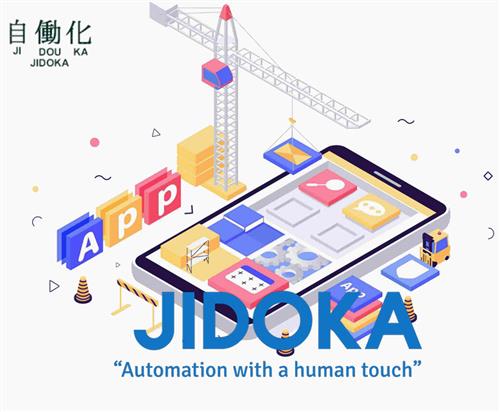
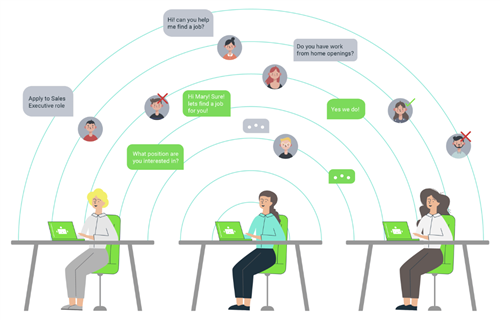

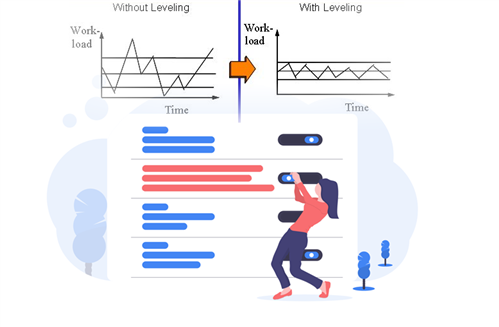












 Link copied!
Link copied!
 Recently Updated News
Recently Updated News